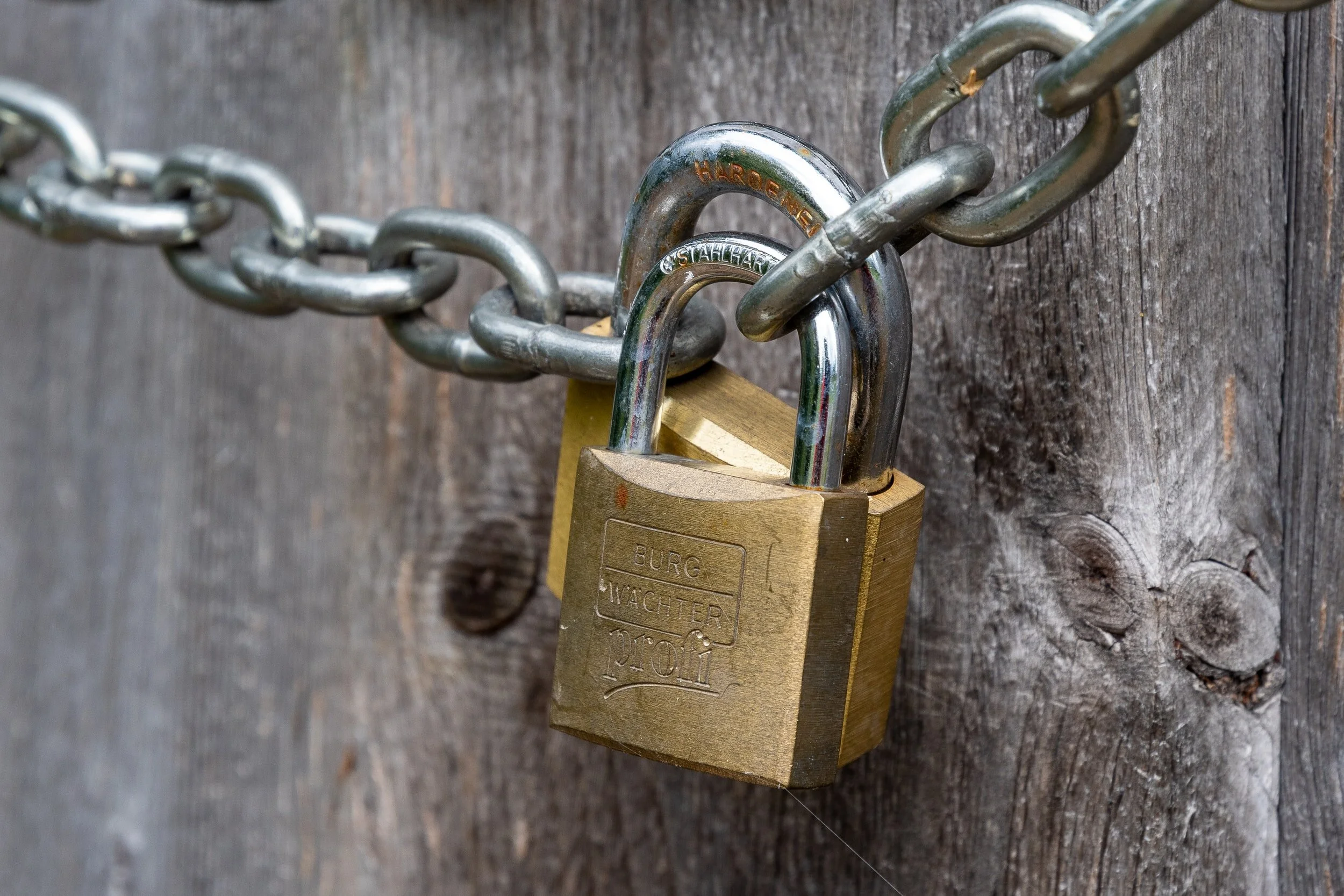Financial Fraud in Canada
Ever received a letter from a foreign prince who promises you millions of dollars, but only if you can spare a few hundred of your own first to help him out in a pinch? Or, has a stranger ever asked you to invest in a business opportunity that seemed a little too good to be true? If so, you may have been exposed to someone trying to defraud you. There are a ton of different aspects of personal financial management, but one that not many people think about on a regular basis is financial fraud. Of course, we don’t mean that Canadians should be thinking about committing financial fraud, but we do mean that it’s smart for people to ensure their personal financial information and savings are secure, and to make sure that they remain protected from external forces.
Financial fraud can be defined as “theft of money or other assets from someone through deception or criminal activity.” Ultimately, if someone accesses your bank account or gains access to sensitive personal financial information and then uses that access abusively, you’re a victim of a financial fraud. Financial fraud can take on a number of forms, and can range drastically in its effects on victims; some people have a small amount of money stolen from them or charged to a credit card, while others have to contend with the issue of criminals using their personal information to take out thousands in loans. Even if you’ve never personally been a victim of financial fraud, chances are, you know someone who has been; it’s estimated that 1 in 10 Canadians have invested money in what turned out the be a fraudulent scheme. Canadians reported losses of over $405 million to fraudsters between 2014 and 2017, and in 2018 alone, Canadian banks reimbursed over $860 million in losses from clients who had fallen victim to debit card or credit card fraud.
There are numerous types of financial fraud, and it’s important to be aware of all of them. According to information from the Financial Consumer Agency of Canada, these include:
· credit card or debit card fraud – occurs when someone uses your PIN, card or card information without your knowledge
· mass marketing fraud – committed using telephone, mail, Internet and email
· investment fraud – pyramid schemes, ponzi schemes, boiler room schemes and so on (these are “get rich quick” investments that often use money from low-tier investors to pay off higher-level investors in a cyclical nature)
· payment scams – includes transfer of funds scams, where criminals rely on the help of unsuspecting individuals to launder their money and take it out as cash
· lottery scams - scams that’ll offer you a million dollar prize, but only if you pay a fee to collect it or provide your financial information for deposit
· employment scams - criminals pose as employers to gain access to sensitive personal information, including people’s SINs, or ask for applicants to pay to acquire things like uniforms or for application processing
· real estate fraud – can take on the form of identity theft (when a fraudster uses your identity to sell the title on property you own to then take the money from the sale and run), or foreclosure fraud (which preys on vulnerable people who are having trouble making payments on their mortgage, offering them coverage of fees for transfer of the property title)
There are also a number of other recognized types of fraud that don’t fall into the above categories, including affinity fraud (fraudsters that associate themselves with special groups like religions or social organizations to seem legitimate) and consumer fraud (consumers are promised goods or services with “magical” abilities only to either never receive a product, or to receive something subpar) among others. Though you’ve likely seen examples or heard of many of these types of scams on their own, it can be staggering to realize how many different ways criminals can attempt to access your money and/or financial information without your knowledge.
One type of fraud deserves a “special mention”, in that it can take on so many different forms and can cause irreparable damage in peoples’ lives; that is, identity theft. Identity theft occurs when a criminal uses your personal information as if they were you. In general, the information that criminals try to gain access to is of a high level of importance, such as your social insurance number (SIN). Once your personal information has been obtained, they can use it for a variety of purposes that could ruin a person financially, including opening new bank accounts, starting new credit cards, taking out loans, buying or selling property titles and more. It can be extremely tough to find out if someone has stolen your identity, and most people don’t find out that it’s occurred until they get denied a loan or rejected on an application for a place to rent. Once your credit rating is wrecked, it’s really difficult to get it back to it’s original state, even if it was due to fraud; depending on the skill of the criminal who took your information and your own record-keeping habits, it may be extremely difficult to prove which actions were genuinely you and which were perpetrated by your identity theft. As such, it’s important to check your credit at least once a year to ensure that what your credit report says falls in line with your own financial behaviour (however, you don’t want to be checking more frequently than once a year, as checking your credit rating repeatedly actually lowers it over time). If you’re noticing errors on your credit report, you should alert your bank immediately that someone may be using your credit without your knowledge, and then contact your local police as soon as possible to file a report. You will also likely need to contact Canada’s credit reporting agencies, Equifax Canada and TransUnion Canada, to obtain a copy of your credit report for the purpose of the police report.
Though all types of fraud target vulnerable people, each tends to target a slightly different demographic. For example, the elderly are much more likely to fall for scams that reach the victim through the Internet, as seniors generally don’t possess the technological aptitude and Internet “street smarts” gained from a lifetime of experience with technology that younger people often do. It’s horrible to hear, but of the $405 million mentioned above that was lost to fraudsters in Canada between 2014 and 2017, $94 million of that was from Canadians between the ages of 60 and 79. Multi-level marketing schemes, otherwise known as pyramid schemes, are attractive to people who may be ostracized elsewhere in their lives and are seeking a community to be a part of. In addition to the financial side of the scheme, pyramid schemes often rely upon growing a strong internal community amongst participants. This community of “friends”, in addition to the promise of easy money, is a critical element of how a pyramid scheme attracts new members in an effort to continue to grow.
When considering financial fraud, it’s important to understand why people fall for scams, as there are a variety of reasons a person could be fooled. Some criminals are skilled at creating a strong illusion of legitimacy, creating a convincing enough marketing package to have you believe they’ve got a real product to sell, while others may use their advanced technological knowledge to hack your details without ever making direct contact with you. It should also be remembered that not every financial fraud is run by a team of cunning criminals; often times financial fraud is perpetrated by seemingly “regular people”, and sometimes by those who are already in our existing networks of friends, colleagues and peers. However, it’s important to note that one of the major reasons that people fall for scams is that they had no idea they should be wary of one. It’s estimated that only 5% of fraud is reported in Canada each year, due to a number of factors, but primarily due to the stigma that surrounds it. Understandably, those who have fallen victim to a financial scam may feel embarrassed and foolish for letting themselves get taken advantage of, and feel that speaking openly about their experiences will paint them in a negative light. As such, fraudsters are often able to move on quickly after they’ve acquired what they were looking for from a victim and continue their pattern of crime elsewhere with a series of new targets. This gives intelligent fraudsters the opportunity to refine their techniques over time and determine which of their criminal strategies are the most effective, making them progressively more difficult to catch.
If you’ve never personally been victim to a financial scam, it can be easy to turn your nose up and assume it’s the victim’s ignorance that leads them to be defrauded. However, though you may be able to spot a less sophisticated scam from miles away, there are some fraudulent operations out there that even the trained eye can’t decipher as such. One of the best examples of this fact come from the largest ponzi scheme of all time, created by Bernard Madoff. Madoff was a very well-known financial advisor based in New York City, known for his role as Chairman of NASDAQ. Madoff traveled in some of the most elite social circles in the world, and yet defrauded people out of billions of dollars over a number of years. When the scheme came crashing down in 2009 and Madoff was arrested, he was forced to forfeit over $17.179 billion US dollars to the American government; he was then awarded a 150-year prison sentence, and is currently still in jail in New York, where he will live out the remainder of his years.
After considering all of the above, it’s understandable to ask yourself, what can I proactively be doing to protect myself from falling prey to financial fraud? Though there are a million answers to the question, in general, the answer is simple: prioritize your security, but also ensure that you’re financially literate and managing your personal finances at an effective level.
It’s important that your system of passwords and security involving your information is as strong as possible. Though you should ensure that all your passwords are strong, this is particularly true for your online banking credentials. Try not to use the same password for everything, as it makes you vulnerable in the event of a breach with one of your various online accounts (criminals know that people often do use the same passwords repetitively, so they may try other places if they experience success with one log-in). If you have any suspicions that your password or log-in details for any type of online account has been accessed by a third party, change them; it’s a five-minute process that may save you an incredible amount of hassle in the future. It’s also of critical importance that you don’t give out sensitive personal information to just any party that requests it. There are plenty of scenarios where your employer or a financial service provider (like QUBER!) may ask you to provide financial information in order to facilitate a transfer of funds or some other legitimate purpose. However, if an otherwise unknown party is asking you to provide financial information and you’re not sure why, be alert!
Another strategy to keep in mind is to be wary of certain behaviours or talking points used by any person or organization trying to solicit some kind of exchange of money or personal information. For example, the Financial Consumer Agency of Canada recommends being cautious if you’re being urged to make a purchase or investment on the spot without much information, or if you’re asked to keep the transaction a secret. It’s important to remember to keep this sense of skepticism when opening/answering emails from unknown senders, as well as if you’re asked to click on links in pop-up ads or to visit unknown websites. It’s also recommended that you listen to your gut: if something sounds too good to be true, it probably is. If you’ve really found a great investment opportunity, you should be able to find some hard evidence to back it up in public records, the Internet, from other trusted participants or elsewhere. If there’s no paper trail behind an “incredible opportunity”, one should be very cautious.
As mentioned, if you’re financially literate, you’re already taking many of the steps you need to be to protect yourself against becoming a victim of financial fraud. Checking your bank balance, credit card statements and tracking your expenses on a daily basis already gives you the baseline information you need to ensure that your savings and personal information are secure. You can’t proactively protect yourself from every type of financial fraud, but if you consistently keep tabs on these figures, you should be able to recognize unknown events in your financial records in an instant and stop any attempt at fraud before it spirals out of control. For example, if you’re checking your credit card balance on a daily basis, you’ll notice within 24 hours if something is charged to your card that wasn’t purchased by you. In that event, you’d be able to pick up the phone and call your bank to report the fraud instantly, and the problem would be resolved in a moment. If you’re not checking your balance on a regular basis and still using the card, you may not find out someone had been charging to it until you have a transaction denied (in the case your credit limit is reached without your knowledge). Same goes for your credit report, as mentioned above in regards to identity theft. Without checking your credit report once a year, you may not catch an identity theft until they’ve created a problem so large it impacts your life forever.
Finally, in the event you do actually believe you’ve crossed paths with a fraudster or what could be a fraudulent operation, report it! Even if you don’t fall victim to the scam, there are plenty of other Canadians out there who may not have the same ability to see it as such, and may lose their savings or sense of financial security in the process. Frank Allen, executive director of the Foundation for the Advancement of Investor Rights Canada (FAIR Canada) has said that “fraud is severely underreported. No one has a handle on the extent of it, so the stories that do surface are troubling.” By reporting suspected instances of fraud (or, if you have concrete evidence in the event you do become a victim), report the crime with as much information as you can to the Canadian Anti-Fraud Centre, the Canadian Competition Bureau or the RCMP. Your tip may help law enforcement officers find, charge and prosecute financial fraudsters, protecting an unknown amount of Canadians who may have otherwise fallen prey to their schemes.
We hope that these pointers can help you reassess or reconfirm your strategy when it comes to protecting yourself against financial fraud. By practicing sound personal financial management techniques, you’re working to ensure that your personal information and savings are as secure as possible from those who would abuse them without your knowledge (among all the other positive benefits of maintaining thorough personal finance habits). Ultimately, our goal is not to terrify you of financial fraud, but to educate you honestly about how fraudsters masks themselves in our society and how you can best protect yourself from becoming a victim.
Check back to Money Talks every Monday for a new post featuring more tips and tricks on how to reach your saving goals, and subscribe to our mailing list for blog updates!
Have a suggestion for something you’d like us to write about? Shoot us a message at contactus@quber.ca and we’ll get to work.





